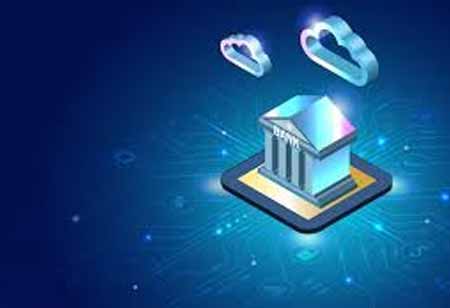THANK YOU FOR SUBSCRIBING

By
Banking CIO Outlook | Tuesday, October 15, 2024
Stay ahead of the industry with exclusive feature stories on the top companies, expert insights and the latest news delivered straight to your inbox. Subscribe today.
EBICS is a secure protocol for electronic banking transactions. It utilises advanced cryptographic algorithms, blockchain technology, AI, and IoT devices for efficient communication and data protection.
FREMONT, CA: The Electronic Banking Internet and Communication Standard (EBICS) is a standardised protocol developed to secure electronic banking transactions, particularly those related to payments and card services. This protocol establishes a robust framework for data exchange between financial institutions and their customers, ensuring transaction confidentiality, integrity, and authenticity.
The Importance of EBICS
EBICS plays a critical role in modern banking by offering several advantages that enhance security, interoperability, efficiency, and cost-effectiveness. Utilising advanced cryptographic algorithms, EBICS safeguards data during transmission, effectively preventing unauthorised access and tampering. As a standardised protocol, it ensures seamless communication between diverse financial institutions and banking systems, streamlining payment processes and minimising manual intervention, reducing potential errors. Automating transactions through EBICS can lead to substantial cost savings for organisations.
Critical components of EBICS include a standardised message format for data exchange, which ensures compatibility across different systems, and a digital signature feature that verifies the sender's authenticity while maintaining message integrity. EBICS also employs encryption techniques to protect sensitive data from unauthorised access and uses secure channels, such as HTTPS or SFTP, for message transmission.
Recent developments, such as the introduction of EBICS 3.0, have further advanced its capabilities, incorporating new features like mobile payment support and enhanced security measures. The trend toward cloud-based EBICS solutions enables financial institutions to leverage scalable and cost-effective cloud infrastructure. At the same time, API integration facilitates seamless communication with other systems, including payment gateways and customer relationship management (CRM) platforms. Incorporating biometric authentication technologies, such as fingerprint and facial recognition, enhances security and user convenience.
For businesses and consumers alike, EBICS offers significant benefits, including reducing fraud through robust authentication and encryption mechanisms, improved operational efficiency via automated payment processes, and enhanced security that safeguards sensitive customer data, ensuring compliance with data privacy regulations. Moreover, EBICS enables organisations to conduct transactions globally, facilitating a broader reach for businesses in the international marketplace.
EBICS offers versatile applications across various industries, enhancing efficiency and security in financial transactions. In the retail sector, EBICS facilitates processing of card payments, loyalty programs, and gift cards. It streamlines electronic health record (EHR) systems, claims processing, and patient payments, ensuring timely and secure financial interactions. Government agencies utilise EBICS for tax payments, distribution of government benefits, and procurement processes, improving operational efficiency.
Emerging trends indicate that EBICS is increasingly integrated with blockchain technology, enhancing security, transparency, and traceability in financial transactions. AI and machine learning are also leveraged to detect fraud, optimise payment processes, and improve customer experiences. Furthermore, EBICS is positioned to secure transactions involving Internet of Things (IoT) devices, such as smart meters and connected cars, thereby expanding its applicability in a rapidly evolving digital landscape.
EBICS has emerged as a vital tool for securing payment and card transactions. EBICS safeguards sensitive data, streamlines processes, and mitigates fraud by providing a standardised, secure, and efficient framework. As technology continues to evolve, EBICS is expected to assume an increasingly critical role in the future of electronic banking.
THANK YOU FOR SUBSCRIBING
Be first to read the latest tech news, Industry Leader's Insights, and CIO interviews of medium and large enterprises exclusively from Banking CIO Outlook
I agree We use cookies on this website to enhance your user experience. By clicking any link on this page you are giving your consent for us to set cookies. More info



